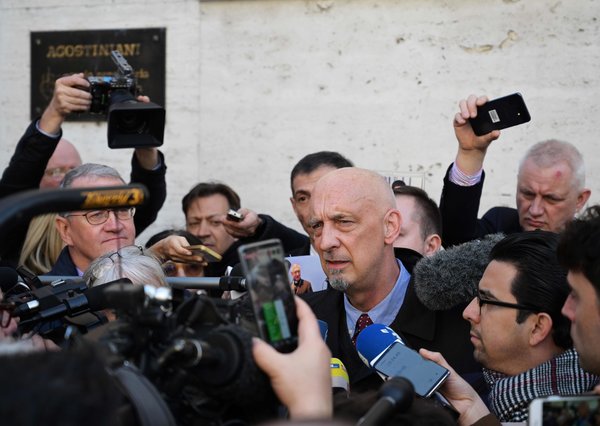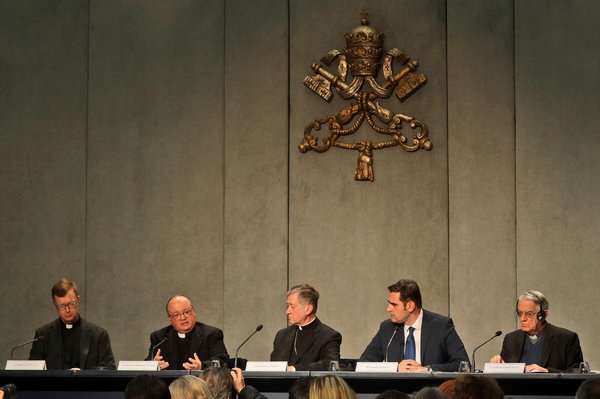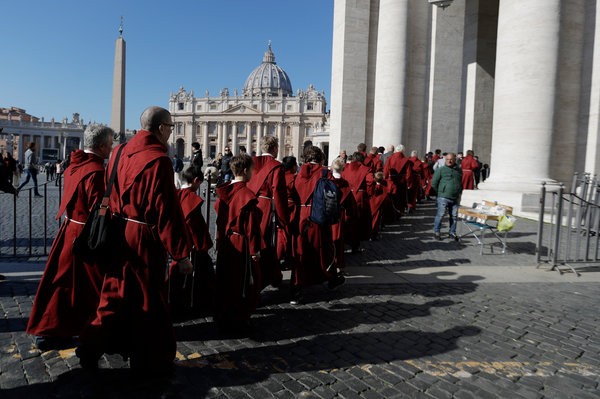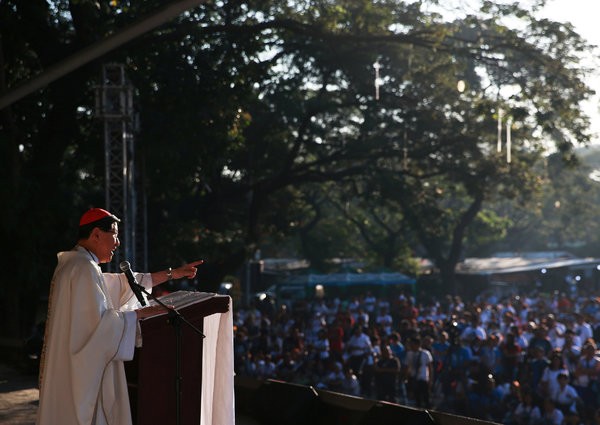Survivors of Sexual Abuse Want Church Reform. Here’s Why It Might Not Happen.
By Jason Horowitz
In parts of the vast Catholic world, some bishops view clerical sexual abuse as more of a sin than a crime. Others attribute it to homosexuality or question that it exists at all. Where Catholics are a minority, as in the Middle East, reporting a pedophile priest to the civil authorities is tantamount to sentencing him to death. As Pope Francis convenes church leaders for a meeting at the Vatican starting on Thursday to address the scourge of clerical sexual abuse, victims’ advocates are demanding urgent and uniform church laws to impose zero tolerance for priests who abuse minors and for the bishops who cover up for them, regardless of the culture in which they operate. But Vatican officials say such a demand reflects a misconception that change in a global and ancient institution can be made with the wave of a papal wand. The diversity of legal and cultural barriers to identifying abusers and assisting victims, as well as entrenched denial, makes putting in place one world standard virtually impossible, they say. Before the conference, The New York Times interviewed bishops and priests on four continents, and their views varied widely on the urgency, extent and very existence of sexual abuse of children and minors among priests — a problem that by now has been painstakingly documented in many parts of the globe. “It is not so simple,” said the Rev. Hans Zollner, an organizer of the meeting, member of the Vatican’s child-protection commission and president of the Center for Child Protection of the Pontifical Gregorian University. Vatican leaders have worked for weeks to tamp down expectations of a sudden revolution in the sprawling bureaucracy governing the church.
The conference instead will amount to a kind of four-day crash course to instruct church leaders on how to handle abuse cases with responsibility, accountability and transparency, and to convince some that the problem exists at all. That has hardly appeased survivors of abuse and others in the church who call the arguments against more decisive action a cop-out. “They are saying there are all these bishops who don’t understand sexual abuse, which is stunning!” said Peter Isely, an American abuse survivor and leader of Ending Clergy Abuse, an advocacy group for survivors of clerical child abuse. “How do you get to be a bishop if you have to be given an education about the rape of a child?” he said, after he met on Wednesday with Father Zollner and the prelates organizing the conference. He was furious that Pope Francis himself did not show up. “The only way to solve this is at the top,” Mr. Isely said. “He can do it with the stroke of a pen.” Father Zollner said he understood the anguished call from victims and advocates for action. But while the Vatican is a monarchy, it is not monolithic and has “as diverse backgrounds as you can imagine in humanity,” he said. “If you think that by the pope declaring that these are guidelines you have solved the problem, actually I think that you may run the risk of being very much disappointed,” Father Zollner said in an interview in his office in Rome. The pope has already provided the church with zero-tolerance laws, he argued, adding that if Francis introduced new norms prematurely, he would risk eroding papal authority, because they had a good chance of being ignored. When the pope emphasized change starting at the bottom, Father Zollner said, he was not shirking responsibility, but making the only choice available, because that was where the change needed to happen.
Francis, he said, will use the meeting to press reluctant bishops’ conferences in the developing world, however belatedly, to adopt guidelines for the safeguarding of minors that already exist in countries that have far more experience in confronting the problem. Some church leaders interviewed by The Times insisted that the problem did not exist in their part of the world and that elsewhere it was being drummed up or overstated by news media with an anti-church agenda. In many places, particularly in Africa, India and other parts of the developing world, fighting abuse is still not a priority. In the global South, many experts point out, clerical sexual abuse is often believed to be the product of homosexuality, a view held also by conservative critics of Pope Francis in the United States and the Vatican. Across the world, “the situation is really different,” said the Rev. Federico Lombardi, the moderator for the conference and the Vatican’s former spokesman, describing the range of cases and cultures the church must address. “You take a archbishop of Bangui,” in the war-torn Central African Republic, he said. “It’s a little different from an American bishop. He goes out of the door and he’s not sure he will come back alive an hour later. I’m not sure he is going to sit down and write the guidelines and procedures and to nominate his delegate on abuse.” That is not true all over Africa, however. Since 2003, 35 cases of abuse by priests have been reported to the church in South Africa, which in October threw out three priests for sexually abusing children. The Rev. Lazarus Anondee, secretary general of the Catholic bishops’ conference in Ghana, also acknowledged that when it comes to sexual abuse by clergy, “communities see us as people with power and with power comes the tendency to exploit others.” While he had not dealt with a case, he said he was working on a new child protection policy to ensure that abuse would “be handled by the country’s law enforcement.”
But that remedy was not an option in some countries in the Middle East. Bishop Paul Hinder, the leader of the Apostolic Vicariate of Southern Arabia, which includes the United Arab Emirates and Yemen, said his bishops’ conference once discussed the complexities of reporting on an abusive priest in a country likely to impose the death penalty. “I would be reluctant to expose a man even if he is guilty,” he said. He added that given that most of his flock were migrants from other countries, “I would rather prefer to send them back and to say, ‘You have to face justice by your own people back home.’” Even back home, justice is not always delivered. Many of Bishop Hinder’s flock migrated from India, which has fallen far short of the zero-tolerance standards of the West. For instance, the Rev. Joseph Palanivel Jeyapaul was reinstated to active ministry by a diocese in India even after returning from the United States, where he spent time in prison for molesting two 14-year-old girls while serving at a parish in Minnesota. The Philippines, the home of Thursday’s first keynote speaker, Cardinal Luis Antonio Tagle, considered a potential next pope, is resistant to zero tolerance for abusive priests, according to the advocacy group BishopAccountability.org. Cardinal Tagle said in 2012 that some clerics who were given a second chance “turned out to be very good priests” while others “failed miserably.” Father Zollner, who has visited more than 60 countries, was clearly frustrated with bishops who insisted the problem didn’t exist. “It is even more surprising if you listen to that from people who should know better because they have cases,” he said. “And if you don’t have cases now,” he said, it’s “because people haven’t started to speak about it.” Even in Europe, enlightenment on the issue has not dawned uniformly. Ireland has become a standard-bearer in advocating for victims, in part because abuse so thoroughly devastated the church.
That is not the case with Italy, which the United Nations Committee on the Rights of the Child criticized this month for its lack of investigations into “numerous cases” of clerical abuse of children. In Spain, Cardinal Juan Jose Omella, the archbishop of Barcelona, said he suspected that a lack of maturity and preparation led abusive priests to “fall into the temptation of sexual impulses.” He had never had a sex abuse case in his 22 years as a bishop, he said. In Poland in 2012, Archbishop Jozef Michalik, a former president of the Polish Bishops’ Conference, blamed abuse by clergy on politicians, divorced parents and feminists — as well as children who lured priests. Other Polish bishops subsequently rejected those remarks. On Wednesday morning, Marek Lisinski, 50, from Poland, who was molested when he was 13 by a priest who remains in ministry, met the pope and hand delivered a report on abuse in Poland. “We clearly think something can be done, and we are waiting for specific actions,” he said. Bishop Oswaldo Escobar, of Chalatenango in El Salvador, said he believed pedophilia was predominantly an Anglo-Saxon phenomenon, whereas Latin American priests tended to sin with adult women. “They seem to have very conservative structures,” he said of the Anglo-Saxon countries. “More things can be hidden.” Luciano Bergamin, a bishop in Rio de Janeiro, conceded that the issue “probably exists,” but said it was motivated by a profit-driven and “defamatory campaign against the church.” Some other Brazilian bishops, though, were hoping Francis, and the meeting in Rome, would get them up to speed. “Having common instructions is helpful,” said Bishop Flavio Giovenale of Cruzeiro do Sul in Acre. “Because a lot of people are lost, don’t know what to do.” Reporting was contributed by Manuela Andreoni from Brazil, Raphael Minder from Spain, Elisabeth Malkin from Mexico City, Joanna Berendt from Poland, Dionne Searcey from Nigeria, Maria Abi-Habib from India, and Jaime Yaya Barry from Senegal.
|
.
Any original material on these pages is copyright © BishopAccountability.org 2004. Reproduce freely with attribution.




